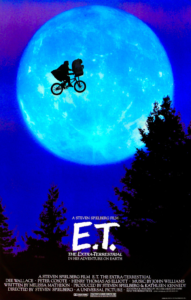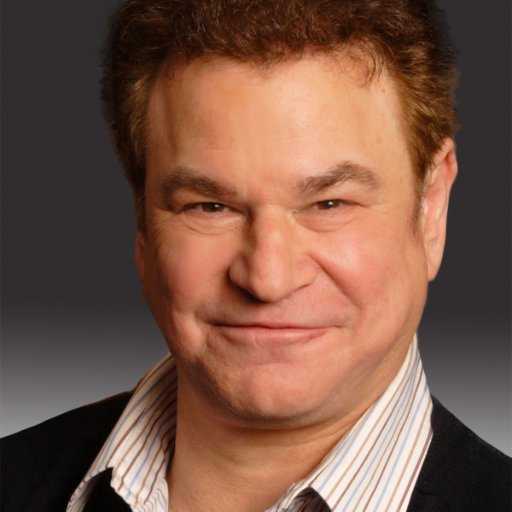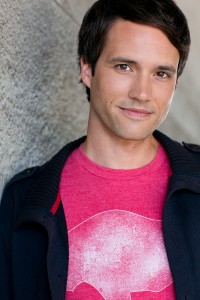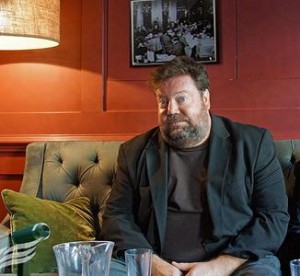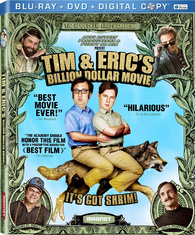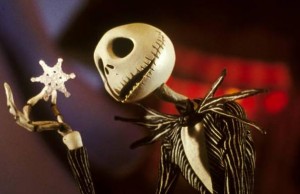It’s one of those moments you always hear about but never think it could happen to you. You offer to take someone to breakfast, show up at the restaurant and discover that your wallet is nowhere to be found. Such began my interview with the multi-talented Tim Kazurinsky. While he was in Kansas City recently appearing in a production of “The Odd Couple,” the Emmy and BAFTA nominated writer and former “Saturday Night Live” cast member agreed to take some time out of his busy schedule to sit down and talk about his career. Imagine my embarrassment when I turned up, tape recorder in hand, with the image of my wallet sitting safely on my sofa floating in my head. Thankfully Mr. Kazurinsky had remembered HIS wallet, so he was able to eat his breakfast.
Born in Pennsylvania but raised in Australia, Tim Kazurinsky literally stumbled into his show business career. While working in advertising he realized that he had a fear of talking in front of people, which is pretty hampering when you go to present an idea. On a whim he enrolled in a class at Chicago’s famed Second City Improv Theater. He was such a good student that he was offered a place in the troupe as both performer and writer and he hasn’t looked back. While at Second City Mr. Kazurinsky had small roles in two films shot locally: “My Bodyguard” and “Somewhere in Time.” He then co-wrote and co-starred in the television program “Big City Comedy.” He eventually earned a spot as a writer and cast member on “Saturday Night Live.” At the time the program had switched producers, with the reigns being taken from creator Lorne Michaels and passed on the Dick Ebersol. After leaving the show in 1984, he co-wrote the hit film “About Last Night” and starred in several of the “Police Academy” films.
Mr. Kazurinsky was very close to the late John Belushi. Almost three decades after Belushi’s death, the pain of that memory is still fresh. I mention that I have visited Belushi’s grave on Martha’s Vineyard while on a “Jaws” vacation. This revelation causes him to relate his tale about seeing the film for the first time:
“I saw it in Chicago. I’d heard so much about it that I knew I had to see this movie. I get to the theatre and it’s packed. And I am the only white guy in the theatre. It was a revelation to me. I had no idea movie watching was a participation sport. I had never experienced anything like it. Everybody was talking to the screen. And there was a guy behind me who had obviously seen the film before. The movie starts and the girl swims out and you hear the music…dum dum, dum dum, dum dum. The gentleman behind me says, “Get out of the water, bitch.” Dum dum, dum dum, dum dum. “Get out of the water, bitch.” The music gets louder…DUM DUM, DUM DUM, DUM DUM…and the guy stands up and screams, “GET OUT OF THE WATER…CAN’T YOU HEAR THE MUSIC, BITCH?!” I thought my head was going to explode.”
Mike Smith: Though you were born in the states you grew up in Australia. What guided you towards a career in show business?
Tim Kazurinsky: It was because I was in the advertising business. I was afraid to present my commercial ideas. That’s why I ended up at Second City…to get over my fear of talking in front of people. I got to Second City and saw everyone in their silly hats and robes and costumes and I felt like I was six years old again.
MS: Rumor has it that you were the final cast member added to “SNL” at the end of the 1981 season and that you had to beat out Paul Reubens. True? Also, your very first show was the last show of the season and didn’t have a guest host. Why was that?
TK: I actually just heard that. I can’t believe that anybody would pick me over Paul Reubens, who to me is one of the funniest men on this planet. If that was the case it’s news to me. Although I do remember a few years later I was up for a job and I couldn’t do it because I had a screenwriting commitment so my agent told me they decided to go for their next choice, F. Murray Abraham! I went “what planet…what universe….do you call me before F. Murray Abraham?” And my agent told me it was because of my “TVQ.” I was on television so I was more recognizable because of “SNL” and the three “Police Academy” movies. And I told him that was just wrong. Cosmically wrong. (My cell phone rings – it’s my wife, Juanita, asking me if I knew that my wallet was on the couch. I did.) As for the last show, I think it may have been that a lot of the hosts candidates were being loyal to Lorne. Or maybe they just wanted to showcase the new people on the show. There’s probably a “public” reason and a “real” reason. (laughs)
MS: What do you recall about your 1980 television show “Big City Comedy?” Was this an off-shoot of your work at Second City?
TK: I had just left Second City, had worked on “My Bodyguard” and was finishing the first draft of what was then called “Sexual Perversity in Chicago,” written by an unknown David Mamet. When I met David he was the dishwasher at Second City. He would watch John Belushi on stage and that is where he developed the character of Bernie Litko. Anyway, after I left I wrote a pilot that NBC picked up as a vehicle for John Candy. We shot the show in Orem, Utah at the Osmond’s studio. The studio cost $93 million. And this was back when a million was a million. It had an ice skating rink in it. And it was paid for in cash. Because the elders of the Mormon Church will not bless anything that is purchased on “time.” Merrill Osmond was the point man for us…very helpful. Because after a few days the crew and I realized we might not survive. We needed coffee. We needed Coca Cola. And we needed beer and ashtrays. And he was able to provide it. I remember going to a store…I had to drive about 30 miles before I was out of a dry county. So I bought my beer and the girl at the checkout wouldn’t touch it. I had to bag it myself. I was just supposed to be a writer on the production but because it was a Can/Am production they needed some Canadians for the cast and some Americans for the cast. So I was picked to be a part of the American cast. And what a show. It only lasted a season. But it was John Candy…before he became JOHN CANDY. I can remember hanging out with him and his lovely wife Rose and holding his beautiful baby daughter Jennifer in my arms. We just had a reunion at Second City and Jennifer showed up. She’s 28 years old now and I used to hold her in my arms. But what a great opportunity to hang out with John. I mean we’d walk into a hockey game in Toronto and the whole stadium would be “Johnny! Johnny!” He was Johnny Toronto. He owned that town. The show only lasted a season but I loved every minute doing it.
MS: Speaking of talent taken way too soon, you worked with the late John Belushi in “Neighbors” and “Continental Divide,” which were both very different roles than Belushi fans were used to? What are your memories of working with him and how do you think his career would have played out had he lived? (NOTE: A visible sadness comes over Mr. Kazurinsky’s face and his voice lowers)
TK: One of the great tragedies of my life was losing John. John got me hired at “SNL.” I never auditioned. He just told Dick Ebersol “you should go to Chicago and see this guy. He should be the den mother of the next troupe.” That’s what got me hired. Ebersol came…saw the show…and hired me on the spot. I wasn’t even aware I had gotten hired for the cast. I thought I was being hired as a writer. He asked me for my AFTRA card (NOTE: the American Federation of Television and Radio Artists is the union for television actors and radio broadcasters). I asked him why and he said I needed an AFTRA card to be in the cast. I said, “What do you mean be in the cast. I thought you just hired me as a writer.” He looked at me and said, “You write?” I loved John dearly. He and his wife, Judy, were so kind to me when I got to New York. They looked after me. They were my guardian angels. (Mr. Kazurinsky’s voice gets even quieter). My birthday is March 3. The three of us were going to have dinner but Judy called me up and told me we’d have to cancel dinner on my birthday because John was still in Los Angeles. I could tell she was crying and I asked her what was going on. “I think he’s in trouble out there.” John had a bodyguard named Smokey, who had been a body guard for Elvis Presley. That week it was also his daughter’s birthday so Smokey went back to Tennessee. And of course a horrible confluence of things happened. (NOTE: On March 5, 1982, John Belushi died from an accidental drug overdose. He was 33.) And now, as of March 5th next year, John will have been dead 30 years. Where did it go? 30 years? He was such a totally misunderstood artist and man. That awful book by Bob Woodward did not serve him well. (NOTE: known for helping break the story that inspired his book “All the President’s Men,” in 1984 Woodward released the book “Wired.” The book, and the film later made of it, were critically slammed. In 1991, Judith Jacklin Belushi released the book “Samurai Widow,” a book that gave John Belushi the respect and honor he certainly earned). That book was nothing but character assassination. John felt he was being “labled” as a performer. It’s like when the Rolling Stones, influenced by the Beatles’ “Magical Mystery Tour” and “Sgt Peppers,” did “Their Satanic Majesties Request” album. It was full of psychedelic music and their fans went, “No! John felt his fans were thinking, “you can’t do Mike Royko in “Continental Divide”…you can’t do “Neighbors”…you’re Bluto with the mashed potatoes.” But John was really smart. He was a great improviser. And he kept asking “do I have to be THAT guy for the rest of my life?” I think it really depressed him. Billy Murray was having success with “Stripes” and…I don’t really know what was going on inside John’s head but I know he wasn’t happy. He was self medicating himself and….I look at that book “Wired” and I ask “where’s the man I know…he’s not here.”
MS: You obviously wrote a lot on “SNL,” even earning an Emmy nomination for your work. But whatever prompted you to attempt to adapt David Mamet for “About Last Night?”
TK: I never went to the Emmy’s because we had to pay our own way! But we had a great writing staff. And the writing staff for the first five years of the show was incredible! And they had a great cast…John, Danny…best cast EVER, of course. But when Dick Ebersol took over most of the writers stayed away out of respect for Lorne. After Ebersol left then they came back and worked again. And I certainly had my battles with Dick Ebersol creatively but I have to say that he kept the show alive through his years. He kept the heart beating. Again, you have to remember he wasn’t DAVID MAMET yet…he was just another unknown Chicago playwright. If you go back to the original play you’ll see a world of differences. Seven years I wrote and re-wrote that thing. Thirteen full drafts. For those that think screenwriting is an easy thing….it ain’t. As David’s work became more and more famous, the fact that I was on “SNL” kept that script going. We got into doors that normally we wouldn’t have gotten into, just because I was on “SNL.” Thank God for that. It was only a one act play. And you have to remember that I started to write it in 1979. And it took seven years to get it made. I think Ed Zwick (the director of “About Last Night”) did a terrific job. But because of the title “Sexual Perversity in Chicago” the networks wouldn’t run ads for it. They refused to run any ads because it was such a salacious title. You have to understand this was pre-cable. They weren’t going to run the ads. So after seven years of living with that title, a month before the movie opened they had to find a new title. We sat for days trying to pick a new title and they picked probably the worst title in Hollywood. (As Mr. Kazurinsky relates this story I produce (2) studio stills of Rob Lowe and Demi Moore – on one, in large black letters, is the film’s title, “Sexual Perversity in Chicago.” On the other, it reads “About Last Night”) I mean the film was in the can ready to be released. I mean, looking back, it was almost Victorian how things were back then.
MS: How did you get involved with the “Police Academy” films?
TK: I get married. I’m on honeymoon in Greece. Nobody knows where I am. But my sister found me. She called around to all of the touristy places and tracked me down. She told me that a couple of my pals from “Saturday Night Live” had written “Police Academy 2” and they wanted me to be in it. I got ahold of them and they told me that they wanted me to be in this little scene and I told them o.k. Well my wife thought I was crazy. “Why would you take one day’s work?” Because they were my friends. They asked me to do it. And I’m not going to say “no” to my friends. So I go out…we shoot for a day. Later they fire the original director and they hired Jerry Paris. Jerry looks at the footage and says, “I hate it all except the old guy in the shop.” So, he kept me around. And he loved Bobcat Goldthwait. He let Bobcat and I screw around and come up with bits. I ended up staying six weeks. Bobcat and I ended up improvising all kinds of stuff. Jerry loves us. They screen the movie and the word is that kids love Bobcat and the old guy in the shop. So they bring us back for “Police Academy 3” as members of the police force. This can only happen in Hollywood. So we end up doing three movies. And I said to my wife, “That’s why you take the one day of work!”
The interview over I sheepishly ask Mr. K if he would autograph an “About Last Night” poster, which he does. The inscription: “Michael, thanks for breakfast!” Next time I’ll be prepared.
Related Content
